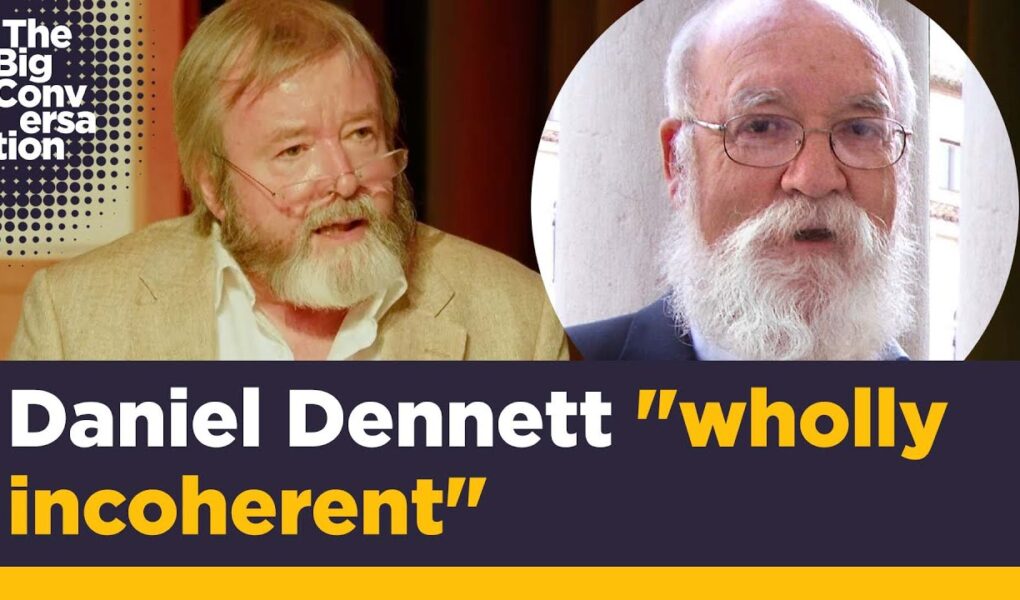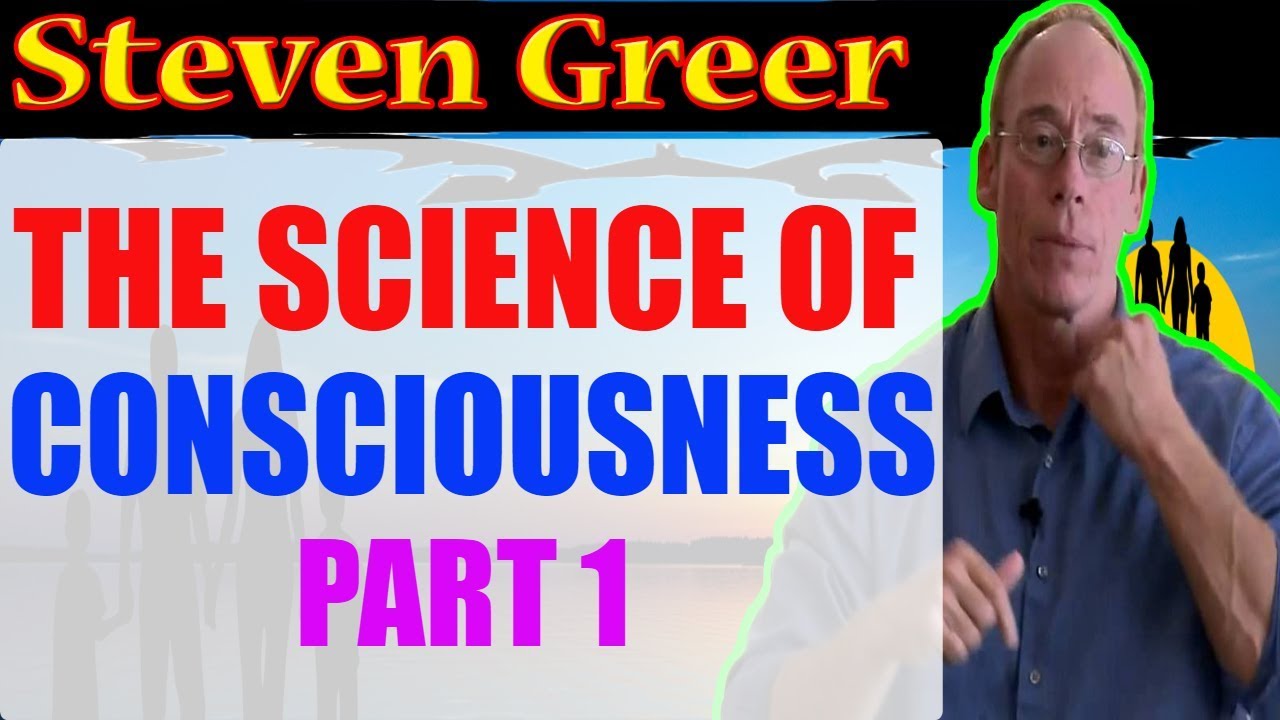Premier Unbelievable?
Psychiatrist and philosopher Iain McGilchrist explains why New Atheist Daniel Dennett has an “incoherent” view of consciousness. Watch the full episode here: https://www.thebigconversation.show/videos/season-4/episode-3-is-there-a-master-behind-our-mind/ 🧠
• More shows, free eBook & newsletter: https://premierunbelievable.com
• For live events: http://www.unbelievable.live
• For online learning: https://www.premierunbelievable.com/training-and-events
• Support us in the USA: http://www.premierinsight.org/unbelievableshow
• Support us in the rest of the world: https://www.premierunbelievable.com/donate
Source



Even as an atheist I don't mind calling consciousness a miracle.
CONSCIOUSNESS IS a biological BRAIN Mechanism
For me, Daniel Dennett is an illusion.
I hope he remains so.
Sanjosemike (no longer in CA)
I don't know how many times I've heard Dennett say "Consciousness is real, it just isn't what you think it is", and I'm by no means well read on the matter. McGilchrist must be intentionally obtuse in his remarks.
Scientific reductionism lost traction a long time ago and there are very few proponents of exclusive materialism as an explanation for everything.
I wonder if Dennet was conscious when he said consciousness is an illusion?
I call it the illusion delusion
He’s trying to expand his consciousness while worrying about another’s awareness of consciousness being in step with his own and yet is reduced to say he can only expand what is something that he understands as something no one else can tell him what is that which he attends is expanding while not helping anyone with functional hearing to understand anything anymore than they did before he spoke. No I guess not says he
The only thing these guys have left that makes sense is Hitchens' defense of being a pro life atheist by following the science and not appeals to emotion
If something can act such that its action can gather resources for its continuity and multiplication, such that we can symbolically say "it is aware of its needs and act on it", it is conscious. No need for stochastic behavior, if something "wants to live" (gather recourses with a behaviour) that's it. that's conscious.
McGilchrist's point seems to rely rather heavily on simply failing to be specific with terms. He says "how can you measure something like love or the meaning of music?" Define what exactly you're referring to with those terms and I'll tell you exactly how to measure them. Every part of love is measurable, as is the excitement or wonder evoked in someone by music.
Consciousness is a product of acquired memory. When a baby is born, they have very little consciousness, they move and react to stimulation, but they don’t have consciousness (awareness.) The more memory one acquires in life, the more conscious they become. Without memory of what something is, there is no consciousness of its meaning. Consciousness is memory; or in other words, memory generates consciousness…
If anyone wants to get an actually interesting discussion of mind and consciousness from the bleeding edge of cognitive science instead of a youtube comment section, I recommend John Vervaeke. All of his work is great, and his Awakening from the Meaning Crisis lecture series compiles most of it (up to the time it was created at least) in a very long but dense and fruitful lecture series also covering a broad swathe of philosophical, scientific, and religious history.
He's not a theist, but isn't at all hostile to religion. Though he isn't an atheist either. Nor an agnostic. If you want to understand how he wants to get beyond that duality, you'll have to listen to him
I love McGilchrist’s point about faith and how God is not a proposition but rather a relationship. The strongest argument I have heard for God is by Kierkegaard “Fear and Trembling”. That is to say that faith rests on the strength of the absurd. It is not a matter of rationality. I think Aquinas and the scholastic movement to mix reason and revelation was a mistake. They are different processes to arrive at truth.
Consciousness is biological…deal with it
In regard to primates; music is the manipulation of time & sound, love is outward manifestation of the reproductive bond between males and females. Words can’t do justice to the complexities of music or love because the human convention and meaning behind them was socially constructed before the invention of language. Material exists, but those who claim that consciousness is immaterial must define or measure what it is that distinguishes immaterial as different from material. Many believe that essence precedes existence, but common knowledge of reality shows that existence precedes the human conceptualization of essence. I’m all in favor of determining essence but only after first realizing that there is existence. Indeed, we spend our time understanding the essence of matter, we don’t need to explain consciousness; we’ve been aware of it for hundreds of thousands of years.
Did McGilchrist actually read Dennett? I wonder because what I hear him say is a serieus misinterpretation of Dennett central theme "we are our brain". Quite shocked actually intellectually speaking on this rebutal of non excisting ideas
It would be interesting to know what Mr McGilchrist would say if, in time, AI became indistinguishable from a human mind and showed feelings of love? Or would he say that’s not possible?
What a jerk.
yep
McGilchrist is a brilliant thinker (highly recommended his book on the brain hemispheres).
I believe McGilchrist is correct. Dennett gets rather slippery when you actually pin him down on what he claims exactly. He never explains the mechanism for how the illusion occurs and explaining the mechanism is an essential component of a thesis for philosophy of mind.
Essentially he asserts that the qualitative is actually just information that appears to be qualitative but actually are not.. As McGilchrist shows if this was true there would be somewhere in the brain we could measure the information that makes up purely qualitative experience like love, music, and aesthetics.
Although i agree with Dennett on most things his denying of qualia seems motivated as a defense of physicalism for which he has devoted 50 years to supporting. He has taken the mapping onto reality that quantitative science provides and assumes that is now the only reality. He has taken the measurement as primary and made the reality an illusion.
🤣🤣🤣
Dennett is a philosopher full stop.
I don't know if he is right or wrong.
We will be arguing about this for ever.
We all need to be open minded.
McGilchrist is good at debunking a position that Dennett does not hold. To say that consciousness can emerge from complex brain stuff is not actually reductive. Suggesting that it would imply as such, is itself a reductive fallacy – McGilchrist attacks a strawman and commits the fallacy of division. What Dennett describes as ‘illusional’ is not consciousness itself (this would be absurd considering that Dennett has published the book “Consciousness explained” – no McGilchrist is arguing against another strawman. Dennett was instead describing the common intuitions of consciousness being typically illusional
Idiot
Can someone break down why there has to be a real consciousness to be alluded
Love can literally be explained by chemicals and the receptors that react to them.
The process in mind makes a self reflexive conciousness which is gradually built up from uncounscious to conciousness and through the process a conciousness is constructed which already appears to itself as illusion and reconstructs itself through this appearance.
Lol, worst interpretation of Dennett's ideas and even worse criticism
McGilchrist's point is weak: If Dennett doesn't believe in consciousness, McGilchrist's critique is inconsequential. Dennett doesn't accept consciousness exists so why attack him on non-mutual grounds? Instead, maybe focus on clarifying his view of physicalism and start from there?
Dennettt towers over this person
appearances are not illusions but the subject of appearances is a sort of illusion because it is conceptual and presumed to be the case. No one has ever found a delineated subject. And again, there are apparently delineated appearances.
McGilchrist either cannot think adequately on this subject, or he is being insincere. Dennett does not imply that consciousness is experiencing the illusion of consciousness, thereby creating the fallacy that consciousness is already part of the illusion. To make this clearer, let's call whatever consciousness actually is 'consciousness-1' and let's use 'consciousness-2' to refer to consciousness that operates by having experiences in the form of qualia (or other commonly assumed features of consciousness that Dennett considers false) . We can give Dennett the further point that consciousness-1 operates differently than consciousness-2. Now, Dennett is NOT sayin that consciousness-1 operates as consciousness-2 would to create the illusion that it operates like consciousness-2. THAT would be a fallacy because it entails the operation of consciousness-2 to create the illusion. He is saying that consciousness-1 operates as consciousness-1 to create the illusion that it is operating like consciousness-2. This is clearly not a fallacy.
Well how can you build a wall out of bricks? A brick is not a wall! See the problem.
This guy is a smart guy, but he begs the question. "Love" is a neurophysiological phenomenon and when the brain is changed in certain ways love goes away. See Alzheimer's patients for example. These folks always appeal to love. Some JP fans pulled this on my and I told them that we look at "love" as the way people act in certain culturally specific situations. Is this guy really the best that the mysterians have to put up against modern science?
Music has meaning to certain people. Bach has no "meaning' outside of certain cultural conditions. This is all sentimental clap trap.
1:38 strawman of Dennett. What Dennett debunks is the unified "self" that Buddhism debunked 2500 years ago.
Yes, and for santa claus for be an illusion there must be a santa claus to be illuded.